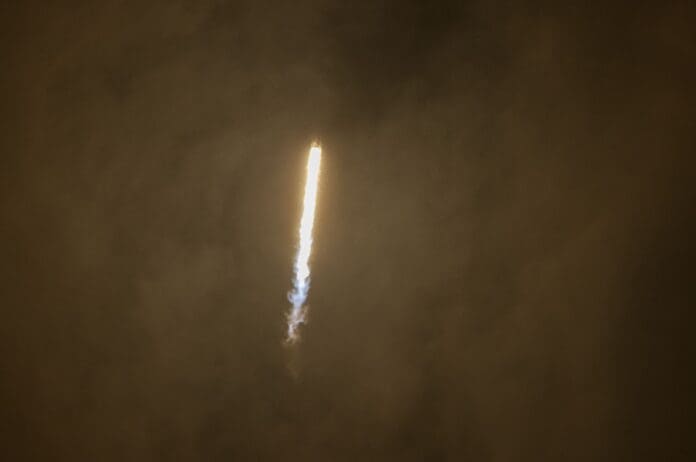This post is also available in:
 עברית (Hebrew)
עברית (Hebrew)
Firehawk Aerospace, a Texas-based innovator in advanced rocket propulsion technology, has successfully completed its first flight test of a 3D-printed hybrid rocket engine system. The test, known as the GMLRS-class Firehawk Analog (GFA), demonstrated impressive performance in terms of both directional stability and thrust, reaching altitudes of over 18,000 feet and surpassing the speed of sound.
This flight marks an important development within the company’s ongoing Phase III Small Business Innovation Research (SBIR) contract with the U.S. Army Applications Laboratory (AAL). The test was launched from a mobile platform designed specifically for this purpose, and the hybrid rocket system’s ability to provide stable flight has been hailed as a major advancement for tactical propulsion systems, according to the press release.
Hybrid propulsion systems, which combine liquid and solid propellants, have long been recognized for their potential advantages. Firehawk’s successful flight test highlights how pairing it with modern additive manufacturing (3D printing) techniques can significantly improve production timelines, adaptability, and cost-efficiency for defense applications.
“This milestone proves that hybrid propulsion systems, when paired with advanced additive manufacturing, have a real place in the future of tactical systems,” said Will Edwards, CEO of Firehawk Aerospace. The company views this achievement as proof of the technology’s scalability and potential, particularly for military applications where rapid deployment and adaptability are essential.
The GFA test is just the first in a series of flight demonstrations Firehawk will carry out under the AAL contract. Future tests will include the Javelin-class and Stinger-class analogs, which aim to replace existing solid rocket motors in Department of Defense weapon systems. Firehawk asserts that its approach could drastically reduce production times, from weeks to hours, by leveraging mobile manufacturing capabilities, a shift that promises to increase force sustainment in contested environments.
As part of its broader strategy, Firehawk Aerospace is also advancing the development of next-generation hybrid rocket engines with the support of a recent $4.9 million contract from the U.S. Air Force Test Center. This contract will help accelerate the integration of hybrid propulsion systems into both strategic and tactical missile technologies.


























